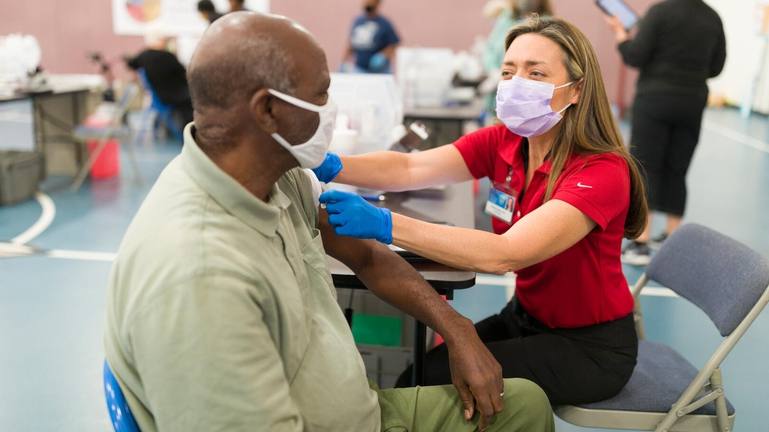-
COVID-19
Mayo Clinic Q&A podcast: Boosters reduce vulnerability to COVID-19 variants

Omicron, a new COVID-19 variant of concern, has been detected in all regions of the world, including North America. While research and clinical observations on the new strain are underway, it is not yet known what impact, if any, omicron will have on the immune response, transmissibility, or specific COVID-19 treatments.
The emergence of omicron is a reminder to take important steps to protect yourself against COVID-19.
"The answer is masking and boosters," says Dr. Gregory Poland, head of Mayo Clinic's Vaccine Research Group.
Dr. Poland is encouraged by vaccine booster rates in the U.S. "In a relatively short period of time, about 36% of adults who are eligible have indeed gotten a booster," says Dr. Poland. "There's plenty of vaccine available. So in the strongest possible terms, I would recommend getting that booster."
Adults who are six months past completing their initial Moderna or Pfizer COVID-19 vaccination series are eligible to receive a booster dose, as are adults who are two months past completing their initial dose of the Johnson & Johnson vaccine.
On the Mayo Clinic Q&A podcast, Dr. Poland discusses the omicron variant and COVID-19 boosters, and he answers some listener questions.
Watch: Dr. Poland discuss the latest COVID-19 news.
_______________________________
Information in this post was accurate at the time of its posting. Due to the fluid nature of the COVID-19 pandemic, scientific understanding, along with guidelines and recommendations, may have changed since the original publication date.
Research disclosures for Dr. Gregory Poland.
For more information and all your COVID-19 coverage, go to the Mayo Clinic News Network and mayoclinic.org.
Learn more about tracking COVID-19 and COVID-19 trends.








